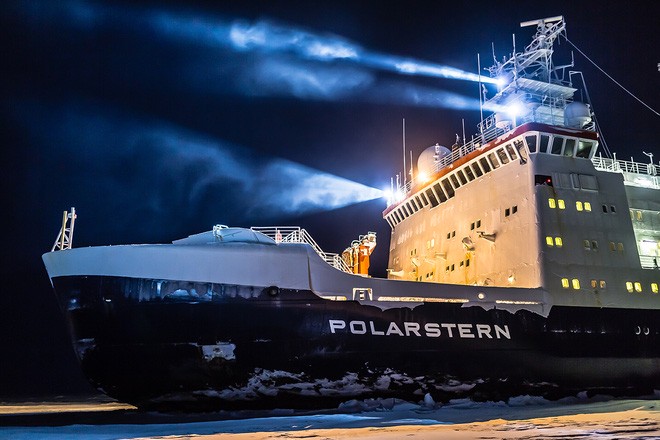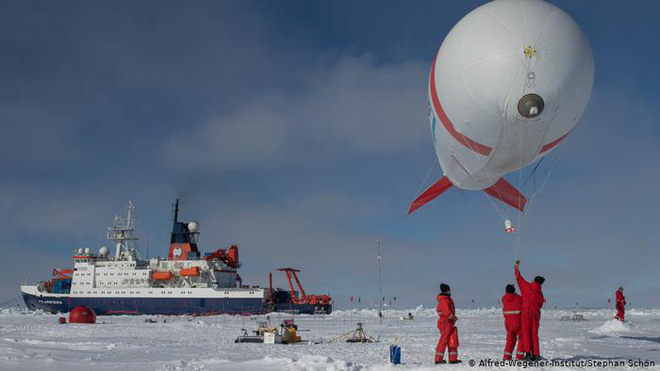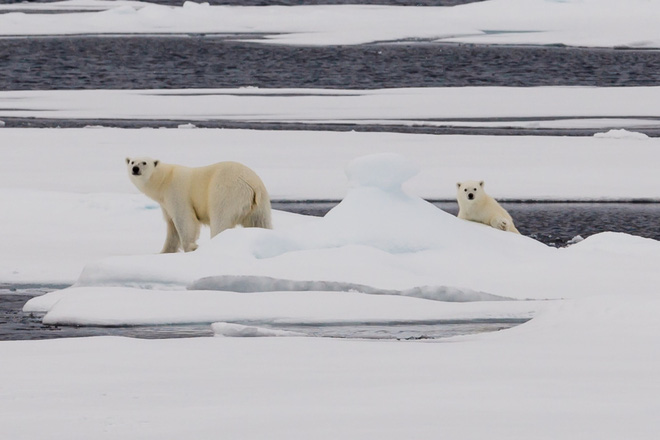Because of the Covid-19 epidemic, more than 100 scientists were trapped on icebreakers between the Arctic Ocean
For the past six months, the German icebreaker Polarstern has been dormant in the middle of the Arctic Ocean. Not that the thick ice clinging to the boat kept the ship from returning to the mainland, but those on Polarstern had no other way. On board were hundreds of scientists from around the world, traveling here and there for months to conduct the MOSAiC expedition, a scientific research effort in the polar region to better understand the place in the changing circumstances. climate.

As planned, around mid-April, the Polarstern will receive a new expedition team in Svalbard, Norway and take the current team of scientists to rest. But because of the raging pandemic Covid-19, this plan was interrupted. For now, the team will stay for another six weeks on the ship, with the aim of keeping the expedition 'unbroken' in the middle.
Earlier this month, the Svalbard government - an archipelago located on the Arctic Ocean - announced a stop of entry due to fear of the Covid-19 epidemic, leaving about 100 scientists and crew unable to dock at Svalbard to catch a flight. go home. In the near future, it is likely that the MOSAiC project leaders will dispatch the ferry of supplies to scientists who are 'entrenched' on the icebreaker.
The Covid-19 epidemic continued to rage, all traffic activities leveled off. It was accompanied by the decision to stop a series of scientific exploration and research activities. The MOSAiC project team faces its own difficulties: they must both ensure the progress of the research and prevent the virus from entering Polarstern at all costs. The supply journey for Polarstern was also very arduous, the helicopter was difficult to reach this icebreaker ship, it also took many weeks for the ship to arrive.

Earlier this month, a researcher planning to join the MOSAiC project was positive for Covid-19, causing the whole project to be disrupted. The situation got worse when the Norwegian government banned entry. The spring plan is stagnant, and now the team doesn't know what the summer plan will be like.
However, the expedition on Polarstern was absolutely safe, living far from Covid-19 and aboard enough food for many more weeks. They have ample time to devote themselves to science, during which time the organizer of the MOSAiC study trip will conduct a preparation plan.
It is expected that another icebreaker will bring the new research team to Polarstern; These individuals will all be negative for SARS-CoV-2 and have been quarantined for a sufficient number of days. MOSAiC executives have contacted a number of ships in the area, examining whether any unimpeded ports are ready for boats to sail.

Another way is to combine two groups of scientists to speed up the research. If so, the team on Polarstern will stay on the ship for another 6 weeks, and instead of three replacement trips from now until September, there will be only two such manpower changes.
This approach will ensure that the MOSAiC project continues on the right track, and also solve a new problem that arises - many scientists are unable to move their current country because of a flight ban due to the Covid-19 epidemic.
For the time being, experts on Polarstern continue their daily work. They study the symbiotic relationship between organisms on the ocean floor and the bacteria in the hydrothermal vessels deep in the sea, learn about carbon cycles around the world ocean - a mission led by NASA, Besides, it is preparing for more than 10 other projects to be conducted next month.
In the situation where the houses are isolated, the people who have to work at home, the team of experts on the Polarstern ship are the few people who can go to work in the epidemic season, and also do important work like scientific research. Again! Despite the distinct nature of the researchers seeking to deal with the Covid-19 epidemic, they all share the same goal: to contribute to humanity.
You should read it
- ★ More than 540 studies, 80 clinical trials and 200 viral genomes: The scientific system is working at full capacity in the Covid-19 epidemic.
- ★ Discover a 1000-year-old ancient Roman mosaic stone in Cyprus
- ★ Smart toilets can identify your 'backhole' and take photos for research scientists
- ★ 23 false scientific facts that we still believe
- ★ The top 10 'inventive' scientific inventions that are great